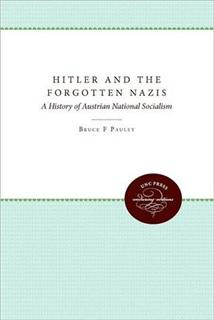The Search for a New Order
1982 The University of North Carolina Press
All rights reserved
Manufactured in the United States of America
Library of Congress Cataloging in Publication Data
Fletcher, William Miles, 1946
The search for a new order.
Bibliography: p.
Includes index.
1. JapanPolitics and government1926-1945.
2. IntellectualsJapan. 3. Shwa Kenkykai.
I. Title.
DS888.5.F58 320.952 81-16198
ISBN 0-8078-1514-4 AACR2
To Michle
Contents
Chapter 1
Politics and Intellectuals in Prewar Japan
Chapter 2
Striving for Social Reform
Chapter 3
Perceptions of Crisis
Chapter 4
A Turn to the State
Chapter 5
Confronting Fascism and Nationalism
Chapter 6
The Early Years of the Shwa Research Association
Chapter 7
Designing a New Order
Chapter 8
Political Mobilization
Chapter 9
Intellectuals, Fascism, and the Quest for Power
Preface
This book could not have come into being without the help of many people, to whom I am indebted. I want first to thank James B. Crowley, whose advice, criticism, and support have been invaluable from the beginning. In addition, John W. Hall, Thomas R. H. Havens, Gerhard L. Weinberg, Lawrence D. Kessler, and Sheldon M. Garon made thoughtful comments about the entire manuscript. I am grateful to them and to others who have read parts of my manuscript in various stages.
While I was in Japan, I received advice and cooperation from many Japanese scholars and former colleagues of Ry Shintar, Ryama Masamichi, and Miki Kiyoshi. Hosoya Chihiro and Fujiwara Akira of Hitotsubashi University gave me helpful suggestions and aided my research in many ways. Baba Shichi of the University of Tokyo introduced me to the materials of the Shwa Research Association, which were under his supervision, and he shared his knowledge of the association with me. Ebata Kiyoshi, editor in chief of the Asahi newspaper, kindly aided me in arranging interviews with many of Rys former colleagues. Doi Akira, Got Rynosuke, and other members of the Shwa djinkai consented to interviews and cooperated fully with my research. I appreciate the kindness of Mrs. Ry Hatsue and her family for agreeing to meet with me. I would like to thank collectively all those who took time out from busy schedules to answer my questions.
I benefited greatly from help provided by the staffs of the following libraries where I conducted much of my research: the Ohara Social Problems Research Institute at Hsei University; the National Diet Library in Tokyo; the Harvard Yenching Library; and the Library of Congress. Kaneko Hideo of the Sterling Memorial Library at Yale University was also very helpful, as was Edward Martinique at the Wilson Library at the University of North Carolina at Chapel Hill.
Financial support from several sources enabled me to complete this project. A Fulbright-Hays Grant enabled me to conduct research in Japan, and a grant from the University Research Council at the University of North Carolina at Chapel Hill and a Reynolds Industries Junior Faculty Development Award facilitated additional research and final revisions.
Ms. Julie Perry, Rosalie Radcliffe, and Susan Hicken deserve a special word of thanks for diligently typing several drafts of the manuscript.
The Association for Asian Studies has granted permission to use material from Intellectuals and Fascism in Early Shwa Japan, Journal of Asian Studies 39, no. 1 (November 1979): 3963. The University Research Council at the University of North Carolina generously provided a grant to aid publication.
Finally, I want to acknowledge the patience and understanding of my wife, Michle, who has encouraged me in pursuing this project.
Japanese names are given in the standard Japanese format with the family name first. The titles of all cited books and articles are translated in the bibliography; titles of items not noted separately therefor example, unpublished documentsare translated in the footnotes.
The Search for a New Order
Chapter 1. Politics and Intellectuals in Prewar Japan
The 1930s in Japan are usually seen as a dark valley of domestic oppression and foreign aggression, but, in fact, many responsible Japanese viewed this era as one of unique opportunity, a time to effect important changes both at home and in Asia. Although studies of Japans diplomacy during this period abound, few scholars have attempted to explain the complicated internal dynamics that produced the nations policies. In particular, the role and influence of popular and politically active intellectuals have received little attention.
This neglect is all the more surprising given the participation of many well-known intellectuals in the Shwa Research Association (Shwa kenkykai), a brain trust for Prince Konoe Fumimaro, the dominant political personality in Japan during the late 1930s. As premier in 1938, Konoe declared the establishment of a new order in Asia, a concept that soon evolved into the vision of the Greater East Asian Coprosperity Sphere. Two years later, Konoe launched the domestic New Order Movement as a radical reform of the parliamentary system and the market economy and as a program of mobilization for war.
When Konoe asked his academic and journalistic advisers to draft plans for the new order, the Shwa Research Association responded by proposing sweeping changes in the political structure established by the Meiji Constitution of 1889. That constitution had granted the Diet the authority to pass judgment on government legislation and had made the military Supreme Command independent of the civilian cabinet. Japanese citizens had the right to vote directly for representatives in the Diet, and through elections, political parties had emerged to dominate that body. The association recommended the concentration of authority to make national policies in a planning organ that would not be responsible to the elected Diet. This body, in turn, was to supervise a national organization that would function as a comprehensive mass party. The proposed reforms would reduce the power of the existing political parties, build popular support for the planning organ, and coordinate the policies of the civilian government and the military. If the New Order Movement succeeded, the government would assume responsibility for centralized economic planning through corporate groups and the national organization would replace the Diet as the main conduit of communication between the masses and the government.
The leaders of the Shwa Research Association in 1940 thus attempted to guide the premier of Japan in the building of a political system patterned after European fascism, that is, the Italian corporate state and Nazi economic policies. Three intellectuals were especially enthusiastic about this vision: Ryama Masamichi (18951980), Ry Shintar (19001967), and Miki Kiyoshi (18951945).









